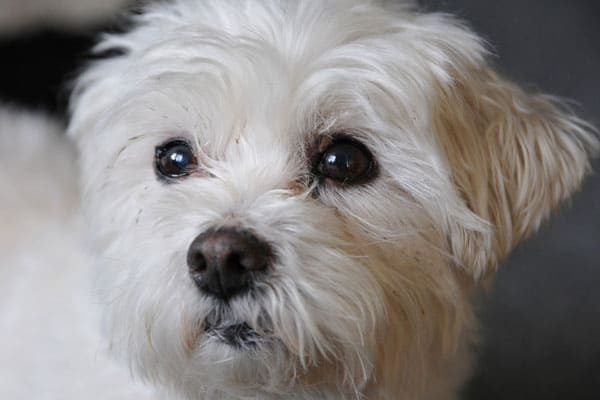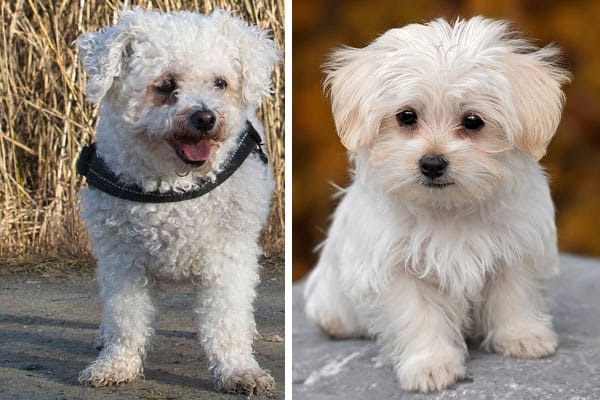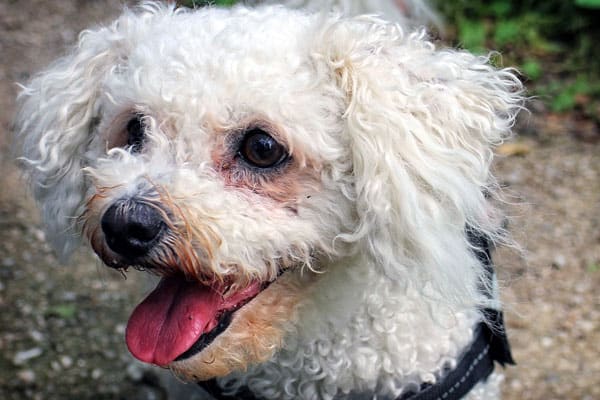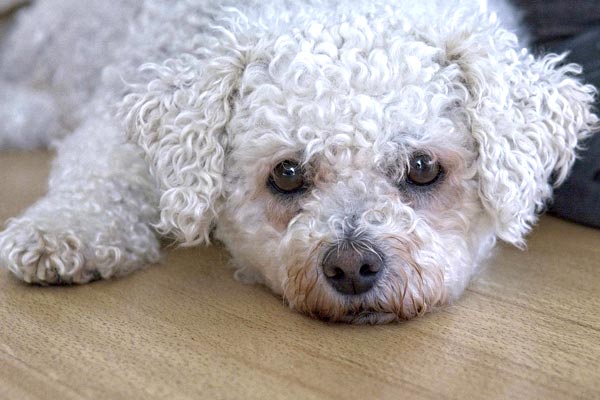When Are Bichon Frise Full Grown: What to Expect As Your Bichon Grows Up
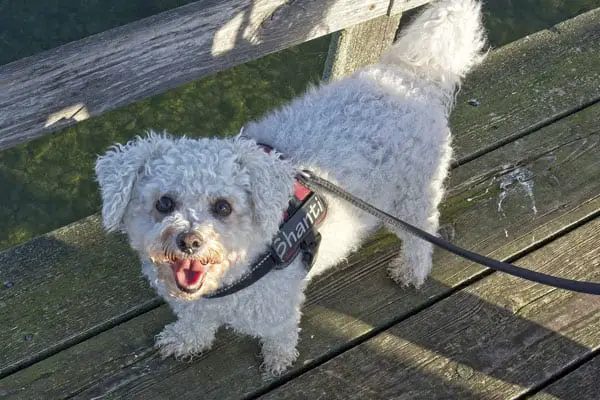
The Bichon Frise dog is a petite companion canine with a long and exciting history. These dogs, with their pure white fluffy coats and big round black eyes, are 100 percent adorable both in looks and in personality.
However, breeders and owners say that this dog breed may be one of the highest maintenance breeds you could choose.
For this reason, it is vitally important to know what to expect and prepare yourself before you even bring your Bichon Frise puppy home. In this article, we will delve into the timeline specifics of the Bichon Frise growth cycle.
When Are Bichon Frise Full Grown?
The Bichon Frise, being a small dog breed, reaches its full adult size and weight relatively quickly compared to larger breeds. Typically, your Bichon Frise puppy will attain its full size by around 12 months of age.
However, it’s important to note that house training may still progress, as small dogs have smaller bladders and may require more time for proper house training. Smaller breeds like the Bichon Frise tend to mature and cease growing earlier than larger breeds.
In the case of the Bichon Frise, they are generally considered fully grown at around 9 to 10 months, although some individuals may continue to grow until they reach 12 months of age.
Watch a Bichon Frise Grow Up from Eight Weeks to One Year Old
In this adorable owner-made YouTube video, you can watch Bom the Bichon Frise growing up from a tiny eight-week-old puppy to a one-year-old adult dog.
It doesn’t take that long for a dog as small as the Bichon Frise to finish up its growth spurt. However, this also means that what happens in that very short period is even more critical, which is what we will talk about here next.
The Bichon Frise: Birth to 13 Weeks of Age
The Bichon Frise puppy starts their life out as all puppies do – blind, deaf, and completely dependent on the mother dog to meet their needs.
According to the Bichon Frise Club of America, any breeder worth buying your puppy from will insist that the puppy stays with the mother dog and littermates (averaging four puppies per litter) until at least the age of 10 weeks.
Some breeders may keep the puppy even longer – up to 13 weeks. This tells you just how important those first 10 to 13 weeks of life are for the Bichon Frise puppy’s growth and development in every way.
So what is so important about those first 10 to 13 weeks? What happens?
Here is an overview from the University of California-Davis of all the changes and developments your Bichon Frise puppy will go through during this critical time.
Birth to 12 days old
As you just learned, for the first nearly two weeks of life, your tiny Bichon Frise puppy can’t see or hear. Thankfully, the puppy can at least smell and can sense touch.
But since your puppy can’t self-regulate their body temperature and doesn’t know how to eliminate it, they need round-the-clock attention, feeding, warmth, and care from their mother (or a human surrogate carer).
13 to 20 days old
By the age of 13 days old, most Bichon Frise puppies will have opened their eyes, and their hearing will have “turned on.”
The puppies will also start to grasp what their tail is for (wagging, of course) and begin developing their bladder and bowel function.
21 to 28 days old
Bichon Frise puppies start becoming much more active around three weeks old. They can see and hear well and are interested in their littermates and playing.
According to VCA Animal Hospital, puppies begin to get their puppy teeth – a set of 28 teeth they won’t get to keep.
But having these puppy teeth grow in can be quite uncomfortable and will result in the puppy starting to bite and chew on everything and everyone.
21 to 49 days old
Again, starting around three weeks old, Bichon Frise puppies enter “social skills school” with the mother dog and their littermates. They are also learning about the role of people in their lives.
This is a very critical period for canine-to-canine socialization. Mother dogs make the best trainers for their puppies.
7 to 12 weeks old
Some breeders may release puppies to their new forever homes as early as seven weeks, but this is not recommended for Bichon Frise breeders. These small dogs can benefit from additional time with their mother and littermates.
For the dog owner who wants to have an easier time house-training their new puppy, allowing your pup to stay with the breeder longer means the breeder will start your puppy down that path, so you don’t have to do all the work!
Between the ages of seven and 12 weeks old, Bichon Frise puppies are starting to bond with people and their canine families. They can begin learning basic commands and basic potty-training skills.
8 to 11 weeks old
Around the age of eight to 11 weeks, puppies undergo an exciting phase that many breeders call the “fear impact phase.”
(In fact, puppies go through a second such phase later in life that is harder to pin down. Dr. Jen’s Dog Blog states it typically happens between six and 14 months old.)
The fear impact phase is critical for bringing home a healthy, well-adjusted, socially confident (towards canines and people) puppy.
Fearful events that occur during these two fear-impact periods can leave a permanent emotional scar that requires careful management for the remainder of your dog’s life.
The Bichon Frise: 12 Weeks to 12 Months of Age
Sometimes, as early as ten weeks, but more commonly between the ages of 12 and 13, you will enter the most exciting phase of Bichon Frise puppy growth – the time you get to bring your puppy home.
This is not only the most beautiful time that will provide you with lasting memories, but it can also be the most emotionally intense and stressful time for you and your puppy.
So, in this section, we look at what is still going on inside your Bichon puppy’s body and mind as they cope with leaving their mom and littermates and learn to live in a new environment with a new forever family.
12 to 16 weeks old
At around 12 weeks, the puppy teeth will start to fall out, and the 42 permanent adult dog teeth will start growing in.
This will result in increased chewing, biting, and other teething behaviors since having teeth falling out and teeth growing in can make your Bichon’s mouth feel pretty tender and sore.
While some biting or chewing is just for pain relief, you must start managing it immediately with appropriate soothing toys so your puppy learns not to bite you or the furniture.
4 to 8 months old
Sometime during this period, your Bichon Frise puppy will start to test their bond with you, which may result in some challenging training sessions.
This is often because your dog has become sexually mature and is now interested in or driven to “mark” their territory with inappropriate elimination (for males) or start their first heat cycle (for females).
The timing of spay or neutering can have a lifelong health impact, so be sure to talk with your dog’s veterinarian about when to do this.
It is also vitally important to use only positive training methods with a sensitive, intelligent dog breed like the Bichon Frise! Any attempts at punishment can significantly impact them, which may damage your bond.
6 to 14 months old
As you learned here earlier, at some point during this period, your Bichon Frise will go through a second fear impact period.
Again, as long as you are using only positive reinforcement and training methods with your Bichon puppy, and as long as you do your utmost to manage any fearful or stressful situations, you are unlikely to have any problems moving through this phase.
12 months old and beyond
Starting at 12 months old (if not earlier), your Bichon Frise puppy will make that final transition into adulthood. Typically, your dog will weigh between 12 and 18 pounds.
This is when you will want to start transitioning from puppy food to an appropriate small dog breed adult food (your veterinarian can help you with food selection and make this transition gradual enough to avoid gastrointestinal or emotional stress).
Now that you know a lot more about what to expect once your Bichon Frise puppy comes home with you for good, you can keep an eye out for each critical milestone and plan to minimize stress for both you and your Bichon.
